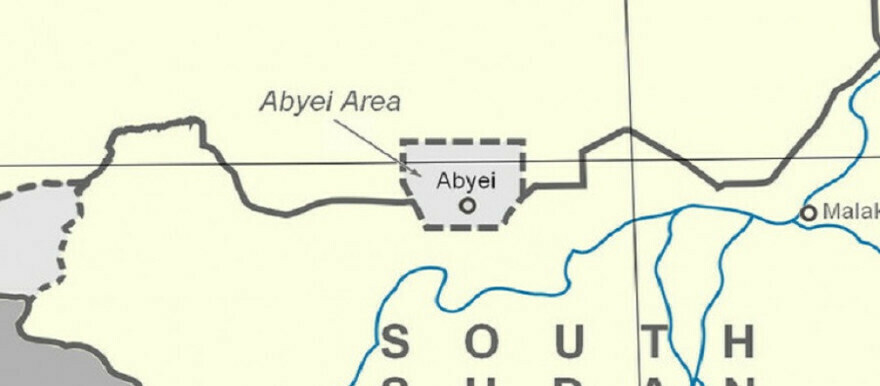Authorities in the Abyei Administrative Area have raised concerns over the continued delay in determining the final status of the disputed region, warning that the uncertainty is causing anxiety and hindering development.
Speaking at the ongoing 8th Governors’ Forum in Juba on Wednesday, Deng Arop Mading, the Deputy Chief Administrator of Abyei, representing the Chief Administrator, highlighted that the unresolved political situation surrounding Abyei’s status is jeopardizing peace and security in the region.
Mading explained that, due to Abyei’s contested status, Sudanese nationals fleeing conflict in their country have sought refuge within the Abyei Area, but are not officially recognized as refugees. He attributed this situation to the ongoing governance dispute, as Abyei remains under joint authority shared by South Sudan and Sudan.
“The area is also facing challenges from the influx of refugees and internally displaced persons, including those fleeing Sudan. We’ve been asking: Should Abyei merely serve as a transit point, or can it also host refugees?” Mading stated.
This is not the first time the administration of Abyei has raised this issue. In 2023, during the 7th Governors’ Forum, the then chief administrator urged both the South Sudanese and Sudanese governments to expedite the determination of Abyei’s final status.
Mading pointed out that the influx of displaced Sudanese has placed significant strain on the region’s already limited resources, further complicating the challenges faced by the local population.
He elaborated, “This issue has arisen because the shared sovereignty between South Sudan and Sudan over Abyei is giving Sudanese leverage to settle in Abyei without officially recognizing their status as refugees.”
The political process concerning Abyei remains affected by the ongoing conflict in Sudan and the political instability in South Sudan, with little to no progress made on resolving the final status of the region.
Sudan and South Sudan are disputing the oil-rich Abyei, an area inhabited by Arab Misseriya and Ngok Dinka communities.
In October 2013, the Ngok Dinka community conducted a unilateral popular referendum, in which the vast majority of people voted to join South Sudan. However, neither Sudan nor South Sudan recognized the plebiscite so far.




